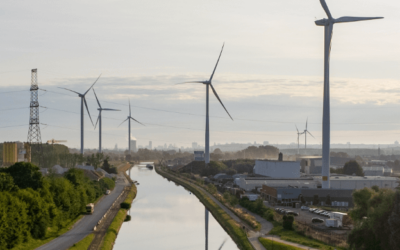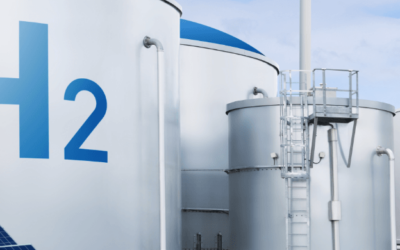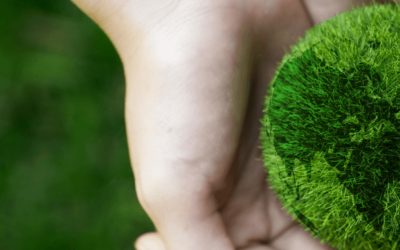Grants are available once again in 2023 for projects aimed at creating circular product and material chains. The Circular Chain Projects scheme opens for applications on 23 March. One thing is for sure – if you’re interested, you need to be quick!
About the Circular Chain Projects grant
The Circular Chain Projects grant scheme has been around for three years now. Past application rounds received unprecedented interest, with the grant budget often being exceeded on the very first day!
If we look at 2022, we see that more than 65 circular chain projects received a grant. With this, about 260 SMEs will work to make their chains circular. For example, a grant went to a project that will realise circular cast floors. These cast floors are made of sand-lime brick from building demolitions. Another project involves making multi-purpose furniture from wood scraps. From the circular point of view, the way of thinking is reversed: first we look at which residual materials are available, only then do we design the furniture.
A new application round of the Circular Chain Projects scheme will start this spring, with a grant budget of 4 million euros to be distributed. Once again, speed is of the essence. While this application round lasts from 23 March (9:00 am) to 29 September (12:00 pm), it’s important to bear in mind that the money will be distributed on a first come, first served basis. Therefore, we advise you not to leave it to the last minute, and to get your plans in place before the application round starts! EGEN’s experts can play an important role in the preparation phase.
Which projects are eligible for a grant?
The Circular Chain Projects grant scheme is intended for entrepreneurs that are collaborating within their chains to devise a circular solution. To find out what that means specifically, we need to briefly examine the most important elements of the scheme:
- A circular solution is one that saves on raw materials and reduces CO2.
- A project must be aimed at designing, producing or organising a product, process or service in a circular way.
- Project activities should mainly consist of the ‘research work’ that needs to be carried out in order to achieve the desired circular developments.
- There must be cooperation between multiple parties in the product or material chain (such as buyers or suppliers, for example, concerned with production, processing or raw materials).
- The partnership must hire a process consultant with at least one year’s experience in guiding businesses in the field of circular economy.
Projects aimed at very high-quality recycling within the chain may also be eligible, but ordinary recycling/downcycling is not covered by the scheme.
For whom is this relevant?
The grant can only be applied for by partnerships. An SME partnership must consist of a minimum of three and a maximum of six SMEs. These must be independent companies (not connected through a holding company), which fulfil different roles within the chain.
One large company per partnership may also participate and apply for a grant. In that case, there is still room for a minimum of two and a maximum of five SMEs within the partnership.
The scheme is also open to entrepreneurs on the BES islands (Bonaire, Sint Eustatius and Saba).
Entrepreneurs who submit an application must enclose a de minimis statement.
Grant amount and conditions
The grant can be an amount of up to 20,000 euros per company participating in the partnership. It is intended to reimburse 50% of the entrepreneur’s approved ‘own costs’, including the hiring of an experienced process consultant. Some important conditions are as follows:
- The collaborative project may have a duration of up to two years.
- After that period, the project should lead to continued cooperation between several participants, each with its own role in the product or material chain.
This latter condition is important to bear in mind for projects involving collaboration with parties whose role is mainly temporary (such as knowledge providers, entrepreneurs offering temporary laboratory or testing facilities, innovation agencies, or technology developers).
What can we do for you?
The experts at EGEN are more than happy to hear from entrepreneurs that are working on circular innovations and see opportunities for collaboration with other parties. We have extensive experience in this area, and look forward to telling you more about the new application round and the conditions.


